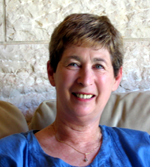By Dorothea Shefer-Vanson

MEVASSERET ZION, Israel –Music has played a vital role in the development of humankind. It can rouse people to action, soothe the troubled breast, and elicit a wide range of emotions. Some people, myself included, are addicted to music (classical, in my case), and cannot bear to be conscious for a single moment without music, either in the background or at a concert or actually playing it (badly, in my case). The ancients were aware of its power, as exemplified by Orpheus’s ability to calm the savage instincts of the ferocious beasts guarding the underworld in his quest for Euridice, David’s ability to soothe King Saul’s dark moods in the Bible, and Shakespeare’s many references to the capacity of music to heal the wounded soul. He even opens ‘Twelfth Night’ with the astounding lines: “If music be the food of love, play on.”
Music and love seem to go together, like bread and butter or heart and soul. As I write this I’m listening to the Adagetto from Mahler’s fifth symphony, which can be regarded as a love poem written for his wife, Alma. The troubadours of the Middle Ages sang of love, whether requited or not, and music seems to be able to express so many things that are almost impossible to put into words.
I was fortunate because I grew up in a family where music was an important part of our lives, and my father was a kind of ‘musical natural’ who could play anything (with chords) by ear. His father and older brother were musically gifted, too. We listened to records from an early age, there was music on the radio, and we were even taken to concerts, especially Handel’s ‘Messiah’ at Christmas. My sisters and I were given piano lessons, as was considered only natural for children from my background, although the financial side of the arrangement cannot have been easy for our refugee parents. When my late father was in hospital his little transistor radio went with him, and in his last days at home music was constantly playing next to his bedside. I hope it helped him in his final hours.
Yesterday Rica Bar-Sela, a veteran editor on the music channel of the Israel radio gave the last edition of her programme ‘The Art of the Song,’ devoting it almost entirely to songs written by Schubert and sung by Dietrich Fischer-Diskau. There are few things more sublime than Fischer-Diskau’s interpretation of Schubert’s songs, and Rica chose the most sublime among those, giving brief explanations of their content and significance in a detached, matter-of-fact way. But after playing the final song and bidding farewell to her unseen radio audience, without saying anything she played one last song, ‘To Music,’ in which, using Schober’s words, Schubert thanks that high art for consoling him in his darkest hours. I must confess that on hearing it in that context I wept, and tears are coming to my eyes even now as I recall that moving moment.
Thank you, Rica, thank you, Schubert, and thank you, music, for all the joy, consolation and spiritual help you have given me.
*
Shefer-Vanson, a freelance writer based in the Jerusalem suburb of Mevasseret Zion, Israel, regularly blogs at http://fromdorothea.wordpress.com/ . She may be contacted at dorothea.shefer@sdjewishworld.com